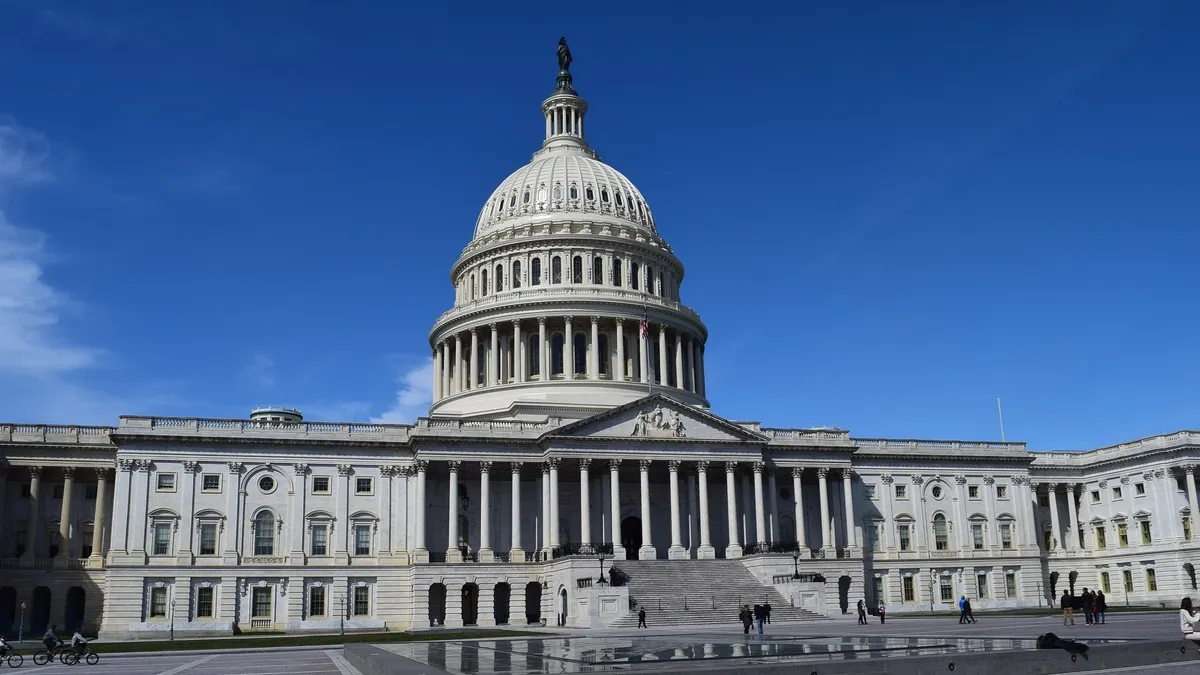UPDATE: March 27, 2020: President Donald Trump signed a $2.2 trillion emergency aid package Friday afternoon meant to blunt the economic fallout from the coronavirus. The U.S. House of Representatives passed the measure earlier that day.
Dive Brief:
- The U.S. Senate passed the package late Wednesday, but higher education leaders say the roughly $14 billion it gives the sector falls far short of what is needed to support institutions.
- Of the money earmarked for higher ed, more than $1 billion is reserved for historically black colleges and other minority-serving institutions, many of which enroll a significant number of low-income students.
- The virus has plunged colleges into economic uncertainty, with funding needed to move courses online and refund room, board and other fees. Colleges are also concerned about their ability to fill fall classes.
Dive Insight:
The American Council on Education (ACE), which represents the nation's colleges and universities, had pressed Congress to provide at least $50 billion in relief for students and institutions, ACE told other news media.
As the virus and the respiratory disease it causes, COVID-19, spread through the country, colleges moved classes and exams online and asked students to vacate campus residence halls. Many institutions have started to refund room, board and other fees, which have been key funding streams for some institutions, Moody's Investors Service noted in a report last week.
Some colleges have already felt the effects of revenue loss. Institutions have announced staff layoffs. Quinnipiac University, in Connecticut, said it would cut faculty and staff pay. Central Washington University, a public college, declared financial exigency, which allows colleges considered to be on the verge of a fiscal disaster, such as a closure, to make drastic decisions like laying off tenured faculty members.
Moody's downgraded its higher ed outlook from stable to negative because of the pandemic, citing "unprecedented enrollment uncertainty" for colleges. Admissions professionals have said it's unclear how economic turmoil will affect both domestic and international enrollment.
ACE President Ted Mitchell slammed the Senate bill in a statement Wednesday, calling it a "woefully inadequate" solution to higher ed's financial needs.
The group requested funding to help pay for the new technology colleges need as they shift to distance learning. It also asked for emergency funding for institutions and their students, some of which it said could be disbursed through the Pell Grant system.
The Senate's package, which the House approved, directs that half of funding given to colleges be passed along to students to help defray expenses related to the coronavirus, including food, housing, course materials, technology, health care and child care.
Mitchell complimented Congress for recognizing the "unprecedented cash flow crisis" the coronavirus has caused, and for the new flexibility in paying back student loans the bill grants. However, he said, the funding "is far below what is required to respond to the financial disaster confronting them."
The Association of Public and Land-grant Universities released a similarly mixed statement Wednesday. In it, its president, Peter McPherson, said the bill did not address problems in a prior emergency relief package signed into law last week, which required public institutions to offer extended paid leave. Unlike the private sector, public institutions were excluded from a federal tax credit to help cover the costs.
UNCF, the HBCU advocacy group that has been lobbying lawmakers for emergency funding, lauded the bill prior to its passage in the Senate, saying it was "happy Congress swiftly delivered" on critical aid.













